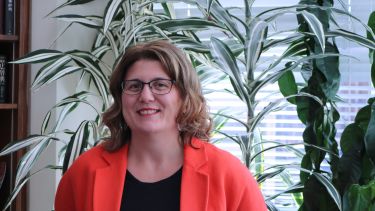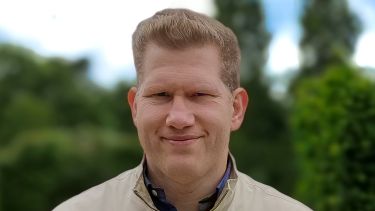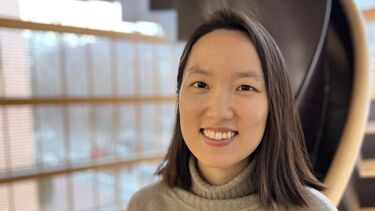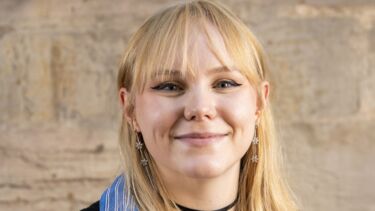Centre for Korean Studies Members
Get to know our members for the Centre for Korean Studies Below:
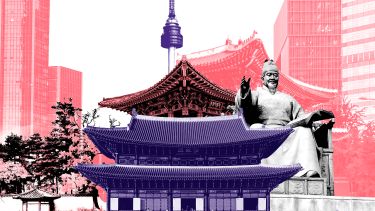
Dr Sarah Son
Dr Sarah Son joined SEAS in 2019. She completed her PhD on identity and inter-Korean relations at SOAS in London in 2014, before spending five years working in South Korea in the non-profit sector on North Korean human rights issues.
Her work there included human rights research and monitoring; reporting and media engagement; consulting with the United Nations, foreign missions and advocacy organisations; and project management of human rights documentation training for NGOs both in and outside Korea.
Her current research involves methods of monitoring and recording human rights abuses in North Korea through interviews with North Korean escapees to South Korea. Alongside this work, she is investigating the potential use of the data gathered on human rights abuses in current and future efforts to pursue accountability for violations.
Concurrently, Dr. Son conducts research on pop culture, identity and international relations in East Asia, including through a recent study on a globally popular television drama depicting North-South Korean relations.
Dr. Son also writes and supervises research on themes including migration and diaspora, human rights activism, memory and memorialisation, nation branding, identity, security and peace-building, with a focus on both the Korean Peninsula and East Asia more broadly.
Within Sheffield’s School of East Asian Studies, Dr. Son teaches on the Korean Studies undergraduate programme and the East Asian Studies postgraduate programme.
Dr Hannah Chang
Dr Chang is a Senior Lecturer in Korean Studies at the School of East Asian Studies, University of Sheffield. Her current research examines cultures of singing, listening, and writing in early Protestant churches in Korea. It explores these cultures’ links to forms of mobility and imagination that emerged from early-twentieth century transpacific geopolitics. Her wider research interests include transpacific music historiography, Korean music and the Cold War, and East Asian musical modernisms.
In 2021, she received an AHRC Research, Development and Engagement Fellowship for her project "Pacific Voicings: Korean Hymns and Prayers in the Age of Empires, 1884-1945." Her work has appeared in The Journal of Korean Studies, Ethnomusicology Forum, Japan Focus: The Asia Pacific Journal, and Twentieth-Century Music, among others. Before joining SEAS, she was a Visiting Assistant Professor of Music at New York University, a Research Professor at Ewha Women’s University, and a Postdoctoral Fellow at the Yale Institute of Sacred Music.
Professor Kate Taylor-Jones
Kate Taylor-Jones has quite a varied background with a broad expertise in many forms of visual arts. Her first degree was in English Literature at Goldsmith College, University of London and her MA and PhD were both from Exeter University. She joined Sheffield in September 2015 as Senior Lecturer in East Asian Studies and she was made Professor of East Asian Cinema in January 2019. She has been the recipient of a variety of grants from a range of funders including the AHRC, British Academy and European Research Council. She is co-editor of International Cinema and the Girl (2015) and Prostitution and Sex Work in Global Cinema: New Takes on Fallen Women (2017) and has published widely in a variety of fields. Her monographs include Rising Sun Divided Land: Japanese and Korean Cinema (2013) and Divine Work: Japanese Colonial Cinema and its Legacy (2017). She is editor-in-chief of The East Asian Journal of Popular Culture. Her current project – Shōjo Dreams and Unruly Idols: Ninagawa Mika, Miyake Kyoko and Ando Momoko, is forthcoming with Edinburgh University Press.
She has a longstanding record of external engagement – working with film festivals, distributors, schools, and diverse audiences on the topic of East Asian cinema and culture including the BFI Early Korean Cinema Series in 2019. She is currently working to curate a Korean Documentary series to be shown in the UK in 2024.
Dr Mike Prentice
I am trained as a linguistic and cultural anthropologist. My research broadly focuses on genres & technologies of communication, organisations & corporations, and work & labour cultures in contemporary South Korea.
Before joining Sheffield, I was a fellow at the University of Manchester where I researched digital security in organisations. Prior to that, I taught anthropology at Brandeis University in the US and held a Korea Foundation postdoctoral fellowship at the Korea Institute at Harvard University.
Dr Derek Kramer
Dr Derek Kramer is a historian of modern Korea, the global Cold War, and East Asian science and technology. He received his doctorate from the Department of East Asian Studies at the University of Toronto. Prior to taking up a lectureship in Korean Studies at the University of Sheffield, he held research positions at Korea University, the University of Cambridge, and the University of Wisconsin-Madison.
Derek’s research explores the cultural and intellectual dimensions of science, technology and infrastructure in colonial and Cold War settings. His ongoing book
project examines the fusion of the atomic age and postcolonial era in post-1945 North and South Korea. Portions of his research have appeared in publications like the
Journal of Asian Studies, International Review of Social History, and positions: Asia critique.
Dr. Yookyeong Im
Dr. Yookyeong Im is an anthropologist specialising in law, language, gender and sexuality, and social movements in contemporary Korea and global contexts.
Her work examines the ways in which law engages with social discrimination and political claims making. In particular, her ongoing book project explores how legal advocacy has emerged as one of the most potent means in South Korean queer activism since the late 2000s. With ethnographic and historical approaches, she reveals the dilemmatic function of law in shaping queer political imaginations. Her research has been supported by the Social Science Research Council, the Wenner-Gren Foundation, and the Korea Foundation for Advanced Studies, among others. Her work has appeared or is forthcoming in Journal of Korean Studies, Munhaktŭl, Korean Journal of Cross-Cultural Studies, and Talking Politics series.
Before joining the University of Sheffield, she completed her PhD in anthropology with a secondary field in the studies of women, gender, and sexuality at Harvard University and held a postdoctoral fellowship in Korean studies at Indiana University Bloomington.
Shinhye Lee, PhD Student
Research topic: Gendered experiences and identities of North Korean female defectors who settled in the United States.
Shinhye has been conducting research on the gendered experiences and identities of North Korean female defectors who have resettled in the United States. She holds a Master's degree in International Relations from the Johns Hopkins University, School of Advanced International Studies (SAIS). Previously, she served as an instructor in the Department of World Languages and Cultures at American University in Washington DC, where she delivered seminars on the impact of climate change on North Korean women trafficking issues and conducted workshops on innovative online teaching methods utilizing authentic media materials. Her professional background includes working at various governmental agencies, including the U.S. Embassy, UK Embassy, and the Korean International Cooperation Agency.
Jeongwon Lee
Research topic: Ethnic identity construction of the Korean Cuban diaspora through the state-led diaspora engagement project
Jeongwon's research centres on the Korean diaspora in Latin America, particularly Cuba. Before joining the School of East Asian Studies (SEAS) as a PhD student, Jeongwon completed her bachelor's and master's degrees in Spanish and Latin American Studies and Sociology at Hankuk University of Foreign Studies. She worked as a graduate research assistant for the ‘Chile K-Package Project,' identifying bilateral ties between Chile and South Korea. Actively joining international conferences on Latin American Studies, Jeongwon also presented her research works on East Asian countries' diverse soft power strategies towards Latin America, focusing on the theme of public and cultural diplomacy. Continuing to build on her background and interest in soft power and diasporic people, she aims to investigate how diaspora diplomacy can become South Korea’s soft power policy, developing and bolstering diplomatic relations.
Catrin S Snaith, PhD Student
Research topic: Intercultural Communicative experiences of North Korean escapees who settle in South Korea.
Catrin’s working title is “North Korean escapees and the navigation of cultural ‘grey-zones’: nurturing intercultural competence through South Korean NGO resettlement programmes”. She first joined SEAS in 2018 as an undergraduate student in Korean Studies with Japanese, before moving to the School of Languages and Cultures to obtain a Masters degree in Intercultural Communication. There, she won the Postgraduate Dissertation Award for her work on Native English Teachers’ opinions and experiences of intercultural communication in South Korea, in addition to an Excellence in Translation Award from the leading translation software company Trados. Returning to SEAS for PhD study, she is combining the two fields in an interdisciplinary project which explores North Korean escapees’ experiences of intercultural communication, exploring phenomena including, but not limited to, intercultural competence, acculturation and (inter)cultural identity. An aspiring polyglot, Catrin is also interested in translation and subtitling, particularly the difficulties of communicating nuanced cultural references across languages. Her research is funded by the AHRC through the White Rose College of the Arts & Humanities (WRoCAH).



